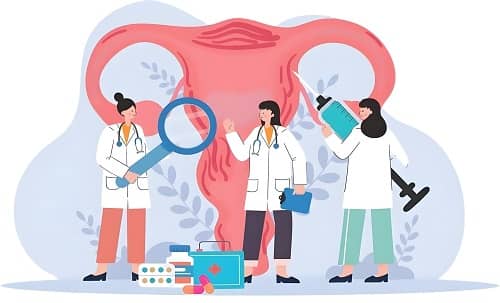If you and your partner have been trying to conceive for a long time without success, infertility could be caused by various factors. These can include issues related to the female reproductive system, male factors, or even unexplained infertility. Fortunately, there are several treatment options available depending on the underlying cause. Here are some common causes of infertility and corresponding solutions:

Table of Contents
- Ovulation Disorders and Treatment Options
- Fallopian Tube Problems and Treatment Options
- Uterine Abnormalities and Treatment Options
- Endocrine Imbalances and Treatment Options
- Male Factors and Treatment Options
- Unexplained Infertility and Treatment Options
1. Ovulation Disorders and Treatment Options
Ovulation disorders are a major cause of female infertility, characterized by irregular or absent ovulation, often related to hormonal imbalances or certain syndromes. Treatment options include:
- Medications: Drugs like Clomiphene Citrate are used to stimulate the ovaries to induce ovulation.
- Hormonal Treatment: In some cases, hormonal injections may be used to restore normal ovulation.
- Lifestyle Adjustments: Maintaining a healthy weight, regular exercise, and reducing stress can help regulate ovulation.
2. Fallopian Tube Problems and Treatment Options
Blocked or damaged fallopian tubes are another common cause of infertility, often due to infection, surgery, or structural issues. Treatment options include:
- Minimally Invasive Surgery: Laparoscopic surgery can be used to unblock or repair damaged fallopian tubes, restoring fertility.
- Lifestyle Improvements: Avoiding recurrent pelvic infections and maintaining a healthy lifestyle are crucial for fallopian tube health.
3. Uterine Abnormalities and Treatment Options
Uterine structural abnormalities, such as fibroids or shape issues, can interfere with conception. Treatment includes:
- Surgical Correction: Procedures like hysteroscopy may be used to remove fibroids or correct other uterine abnormalities.
- Regular Monitoring: Regular check-ups to ensure the uterus is in a healthy condition for embryo implantation.
4. Endocrine Imbalances and Treatment Options
Endocrine issues, such as thyroid disorders or insulin resistance, can affect fertility. Solutions include:
- Medication: Hormonal therapy to correct imbalances, such as thyroid medication or drugs for insulin resistance.
- Diet and Lifestyle Adjustments: A balanced diet, regular sleep, and proper exercise can help regulate hormones and improve fertility.
5. Male Factors and Treatment Options
Male infertility, often due to low sperm count, poor sperm quality, or low motility, can be addressed by:
- Lifestyle Improvements: A healthy diet and regular exercise can improve sperm quality.
- Medications: Certain drugs can help improve sperm production and motility.
- Avoiding Environmental Toxins: Reducing exposure to heat and chemicals can protect sperm health.
6. Unexplained Infertility and Treatment Options
In some cases, no clear cause of infertility is identified. In such situations, doctors may suggest:
- Further Observation: Regular monitoring of ovulation cycles and sperm quality for any changes.
- Healthy Lifestyle: Maintaining a healthy lifestyle, including diet, exercise, and stress reduction, may help increase the chances of conception.
Conclusion
The treatment for infertility varies depending on the underlying cause. The key is to find the right treatment plan based on scientific diagnosis. By combining medical treatments with a healthy lifestyle, many couples are able to conceive. Maintaining a positive attitude and staying hopeful is essential for the journey toward becoming parents.